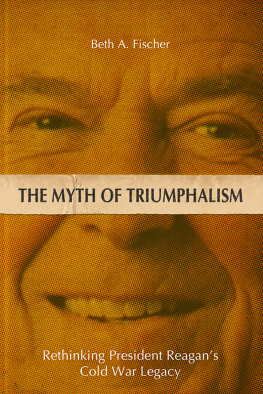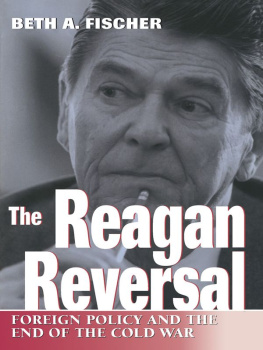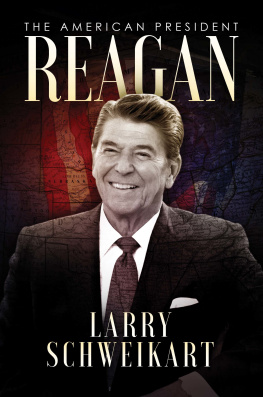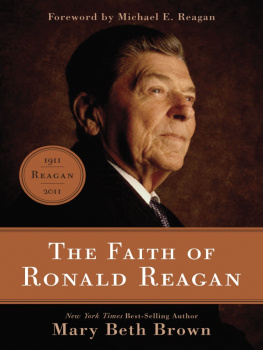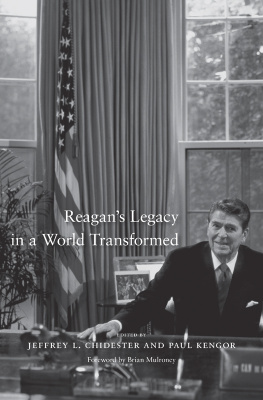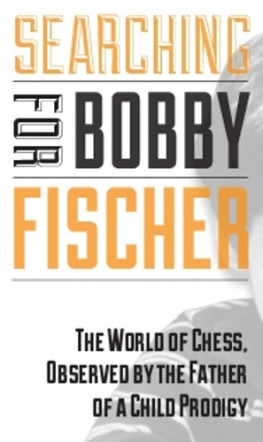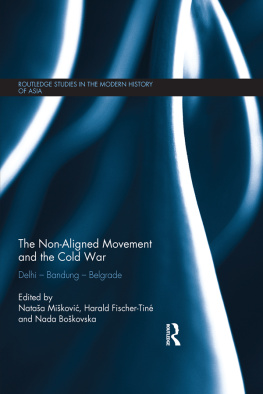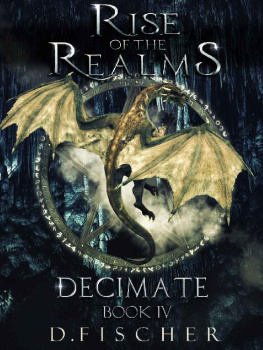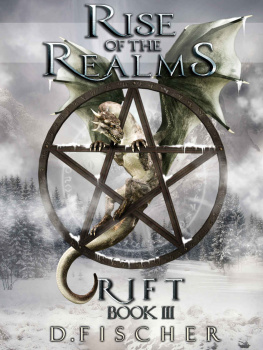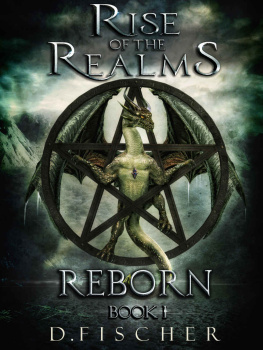The Myth of Triumphalism
The Myth of Triumphalism
Rethinking President Reagans Cold War Legacy
BETH A. FISCHER
Due to variations in the technical specifications of different electronic reading devices, some elements of this ebook may not appear as they do in the print edition. Readers are encouraged to experiment with user settings for optimum results.
Copyright 2020 by The University Press of Kentucky
Scholarly publisher for the Commonwealth,
serving Bellarmine University, Berea College, Centre
College of Kentucky, Eastern Kentucky University,
The Filson Historical Society, Georgetown College,
Kentucky Historical Society, Kentucky State University,
Morehead State University, Murray State University,
Northern Kentucky University, Transylvania University,
University of Kentucky, University of Louisville,
and Western Kentucky University.
All rights reserved.
Editorial and Sales Offices: The University Press of Kentucky
663 South Limestone Street, Lexington, Kentucky 40508-4008
www.kentuckypress.com
Library of Congress Cataloging-in-Publication Data
Names: Fischer, Beth A., 1964 author.
Title: The myth of triumphalism : rethinking President Reagans Cold War legacy / Beth A. Fischer.
Description: Lexington, Kentucky : University Press of Kentucky, [2020] | Series: Studies in conflict, diplomacy, and peace | Includes bibliographical references and index.
Identifiers: LCCN 2019030036 | ISBN 9780813178172 (hardcover) | ISBN 9780813178196 (pdf) | ISBN 9780813178202 (epub)
Subjects: LCSH: Reagan, Ronald. | Cold War. | United StatesForeign relationsSoviet Union. | Soviet UnionForeign relationsUnited States. | United StatesForeign relations19811989. | United StatesPolitics and government19811989.
Classification: LCC E876 .F567 2020 | DDC 973.927092dc23
LC record available at https://lccn.loc.gov/2019030036
This book is printed on acid-free paper meeting
the requirements of the American National Standard
for Permanence in Paper for Printed Library Materials.
Manufactured in the United States of America.
| Member of the Association of
University Presses |
For Gerard, Kate, Andrew, Jack, andof courseToby
Contents
Introduction
Triumphalism and President Reagans Cold War Legacy
What role did the Reagan administration play in ending the Cold War? This is an important question because the ending of this conflict was arguably the biggest surprise of the twentieth century. The Cold War had divided much of the globe since 1947, and during the 1980s it was widely assumed that it would continue indefinitely. The Cold War was considered to be an enduring and fundamental feature of the international system. It simply did not occur to most Americans that it could end. Even the so-called experts failed to anticipate its demise. As Bruce Jentleson explains in his popular textbook on US foreign policy, What we must acknowledge is how humbling the end was, or should have been, for experts. It was not uncommon in the mid-1980s for professors to assume that any student who imagined a postCold War world was just young, nave, and idealistic. The Cold War was with us, and, students were told, likely to have its ups and downs, its thaws and freezes, but it was not about to go away.1
It was widely assumed that if the Cold War were to end, it would end very badly indeed. Common scenarios envisioned a regional conflict escalating out of control, drawing the United States and the Soviet Union into direct confrontation, most likely in Europe. A large-scale conventional war would be fought and horrific losses would ensue. The war would end, it was feared, with the superpowers unleashing their nuclear weapons, resulting in Armageddon. A nuclear winter would then settle over Europe and North America.
After 1949, when the Soviets detonated their first nuclear bomb, the United Statess primary objective had been to avoid all-out war with the USSR. Virtually no one entertained the idea of actually resolving the Cold Warthat is, solving the underlying disagreements that led to mistrust, arms races, and competing alliance systems. Resolving these fundamental disputes seemed too preposterous to consider seriously. As one Reagan administration official explained in 1983, [N]o one manindeed no group of mencan affect, except at the very margins, the fundamentally competitive nature of [the superpower] relationship. And I must caution you that improvements, if they do come, are bound to be modest. We will not see the day of days with the Soviet Union. Our rivalry will, I fear, outlive all of us in this room.2
The great irony is that not only did the Cold War end, it ended peacefully. Despite widespread assumptions that the conflict was permanent and irresolvable, the superpowers resolved their differences and began to disarm. If we can understand how this happened, we can gain insight into how to peacefully conclude other seemingly intractable conflicts. Getting the story right is therefore a high-stakes proposition.
Views about President Reagans Role in Ending the Cold War
When President Ronald Reagan left office in January 1989 the conventional view was that he had played at best a minor role in ending the Cold War.3 From this perspective Soviet General Secretary Mikhail Gorbachev single-handedly ended the Cold War by introducing a series of revolutionary policies that ended the arms race and improved relations between East and West. Gorbachev came to power seeking to revitalize the Soviet economy. Consequently, he sought to reduce defense expenditures and to invest instead in consumer goods, technology, and infrastructure. In order to reduce defense spending, Gorbachev needed to end the costly arms race and improve relations with the United States and its allies. He therefore introduced his policy of New Thinking, which entailed a more conciliatory posture toward the West and a series of unilateral gestures intended to build trust, such as unilaterally reducing Soviet arsenals and instituting moratoriums on the deployment of new intermediate-range nuclear missiles and on nuclear weapons tests. Rather than focusing on superpower rivalries, Gorbachev emphasized common interests, such as the need to end the threat of nuclear annihilation, stem environmental degradation, and address global disparities in wealth.4
From this perspective, it was Gorbachevs desire to reform the Soviet system that led to the end of the Cold War. His decision to end the arms race led first to improved relations between Moscow and Europe and ultimately to an end of the hostility between the superpowers. President Reagan played a largely passive role in these events. He was simply the lucky beneficiary of Soviet initiatives to conclude the Cold War.
This school of thought was common in the United States during the late 1980s and 1990s. At the time, scholars and journalists were taken aback by the momentous changes within the USSR and the Eastern bloc and were consequently fixated on Soviet policy. The result was a Gorby-centered view of the world. Moreover, it was fashionable in some quarters to dismiss Reagan as an unsophisticated thinker who was largely detached from the policy-making process. The idea that the president played virtually no role in ending the Cold War was based in part upon assumptions that he played a secondary role in his own administration.





